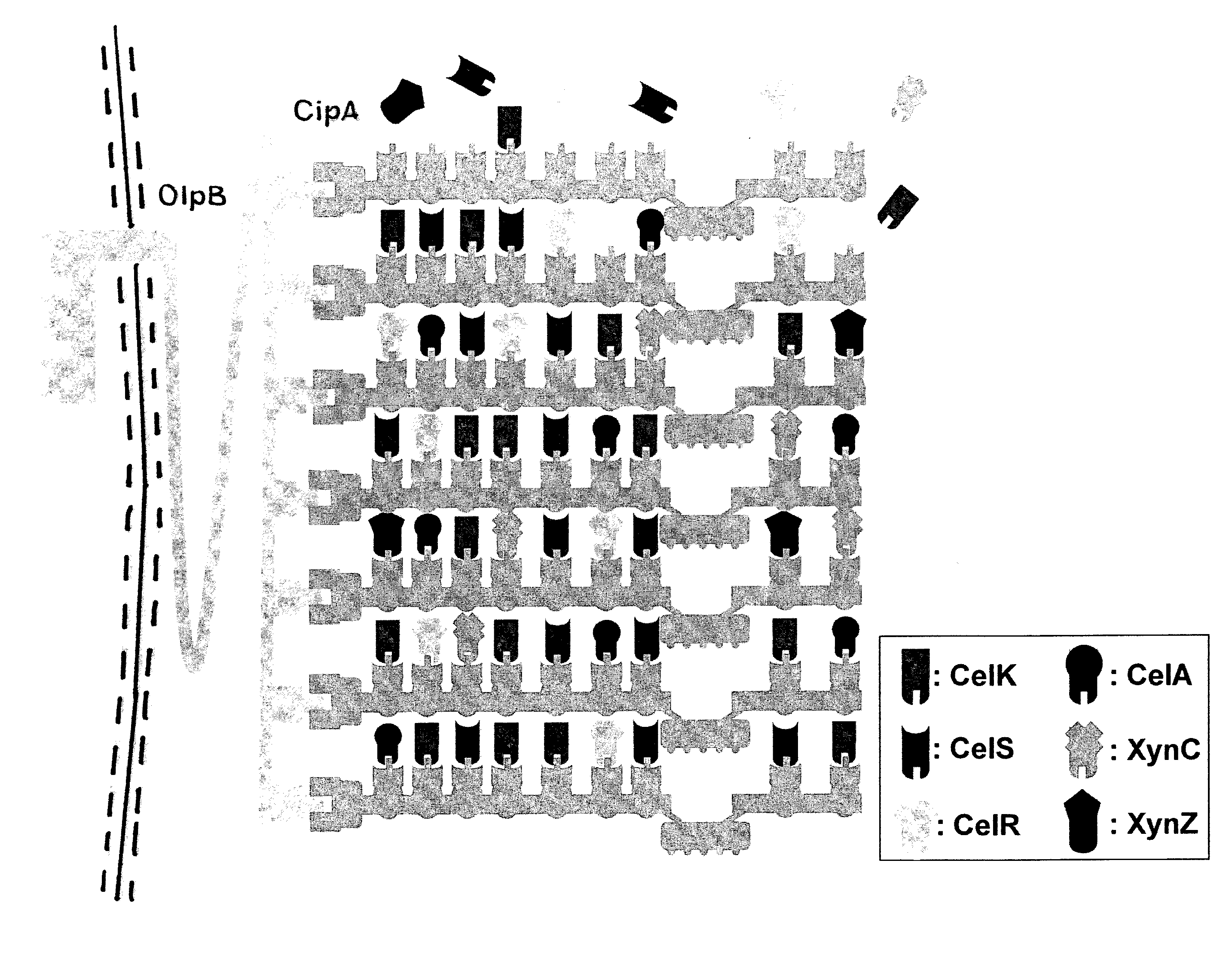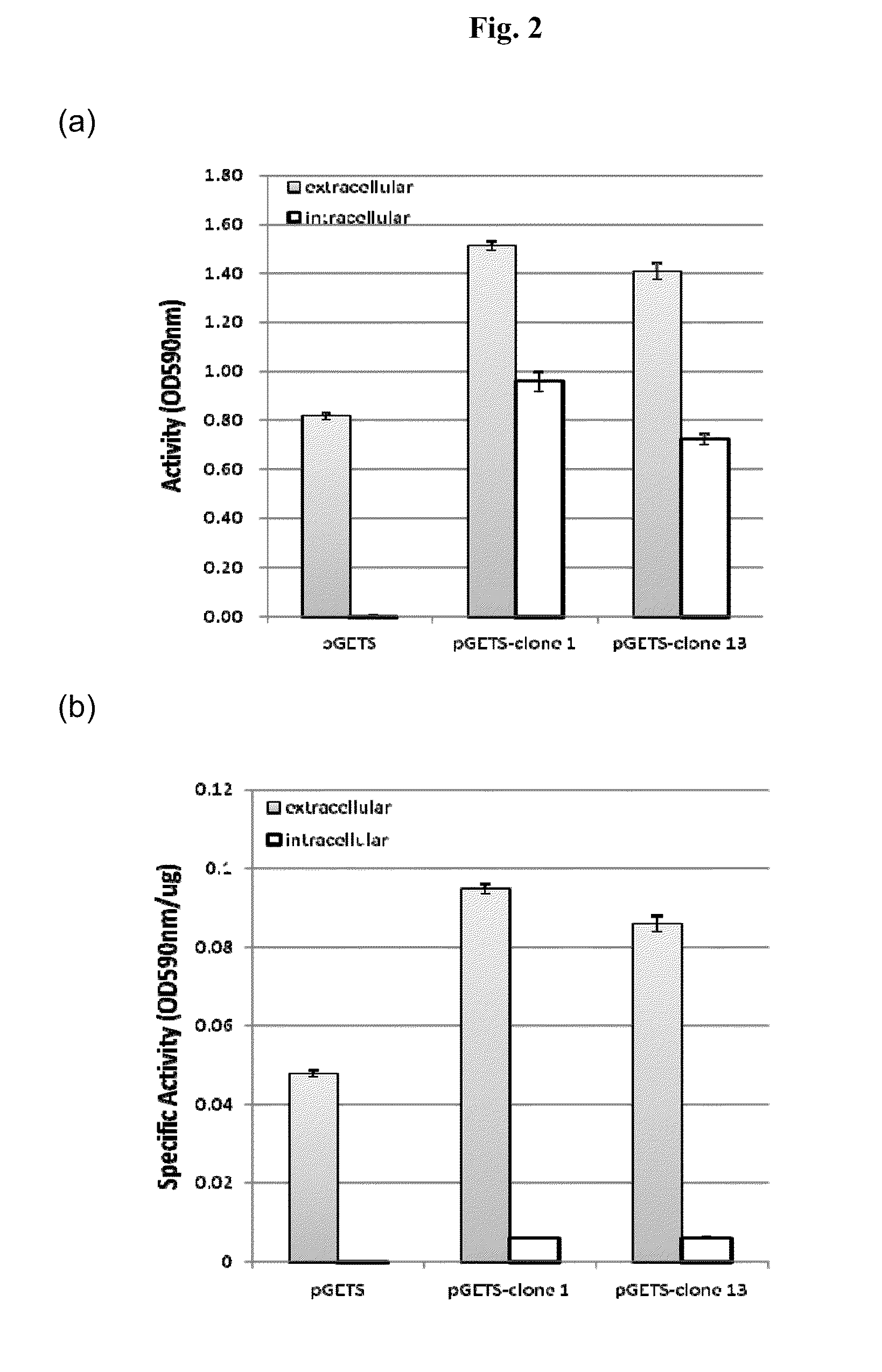Method for producing extracellular multi-enzyme complexes in host cells
a multi-enzyme complex and host cell technology, applied in the field of expression cassettes, can solve the problem of fermentable sugars trapped inside the lignocellulos
- Summary
- Abstract
- Description
- Claims
- Application Information
AI Technical Summary
Benefits of technology
Problems solved by technology
Method used
Image
Examples
Embodiment Construction
[0014]Cellulosomes are protein complexes produced by microorganisms for hydrolyzing insoluble polysaccharides, such as celluloses. Typically, a cellulosome contains a cell surface anchoring protein, a scaffoldin protein, and multiple cellulosomal enzymes. The scaffoldin protein, serving as a skeleton of the cellulosome, contains (a) one dockerin domain for binding to a cohesin domain in the cell surface anchoring protein, and (b) multiple cohesin domains each for binding to the dockerin domain in one of the multiple enzymes. The cellulosome can be anchored on cell surfaces via the cell surface anchoring protein. See Gold et al., J. Bacteriol. 189(19):6787-6795; 2007 and Bayer et al., J. Structural Biol. 124:221-234; 1998.
[0015]The present invention relates to preparation of cellulosomes or other structurally similar protein complexes using an operon-type expression cassette for expressing necessary proteins in a suitable host cell. This approach has the following two advantages. Fir...
PUM
| Property | Measurement | Unit |
|---|---|---|
| pH | aaaaa | aaaaa |
| pH | aaaaa | aaaaa |
| concentration | aaaaa | aaaaa |
Abstract
Description
Claims
Application Information
 Login to View More
Login to View More - R&D
- Intellectual Property
- Life Sciences
- Materials
- Tech Scout
- Unparalleled Data Quality
- Higher Quality Content
- 60% Fewer Hallucinations
Browse by: Latest US Patents, China's latest patents, Technical Efficacy Thesaurus, Application Domain, Technology Topic, Popular Technical Reports.
© 2025 PatSnap. All rights reserved.Legal|Privacy policy|Modern Slavery Act Transparency Statement|Sitemap|About US| Contact US: help@patsnap.com



